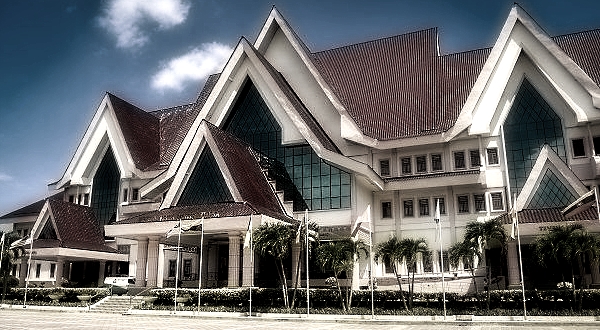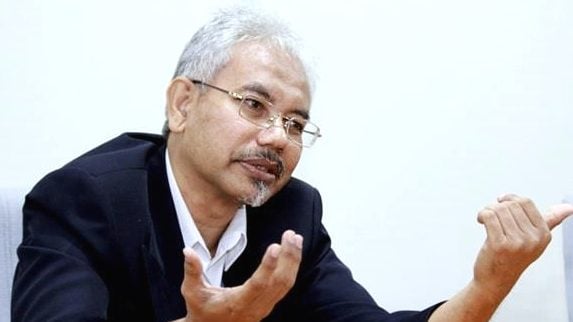Sin Chew Daily
Owing to the defection of four PN assemblymen in favor of PH, the Melaka state government officially falls. Soon afterwards, state legislative assembly speaker Ab Rauf Yusoh announced that Yang di-Pertua Negeri Mohd Ali Rustam had consented to the dissolution of the state assembly, paving the way for a state election to be held within 60 days.
There are two major highlights in yesterday’s press conference. Firstly, can the collaboration among BN, Bersatu and PAS continue? If yes, how are they going to redistribute the seats?
Secondly, Malaysians have grown utterly disgusted at political conflicts among parties 19 months after Sheraton Move, and the upcoming state election should serve as a “mid-term” test for the various parties in the ruling coalition as well as opposition. Its outcome will serve as a key reference for the parties’ electoral strategies come the 15th general elections.
There are 28 state seats in the Melaka legislative assembly. After the March 2020 change of government, PN and PH have had 17 and 11 seats respectively. But with two assemblymen from Umno, one from PN and another independent rep now turning to support PH, PH is now leading with 15 seats vis-à-vis PN’s 13. And with the nod from the YDN, state election is set to be held soon.
Umno president Ahmad Zahid says the best solution is to dissolve the state assembly and let the voters decide who should form the next government. Indeed, both the ruling and opposition parties will now have to pass the test of the voters.
Will the state coup serve as a barometer for the country’s politics? And will the never-ending political upheavals at the federal level be extended to the states?
Perak and Johor, the other two states with very close seat numbers from rival camps, may have experienced similar coups if not for the sultans’ insistence to preserve political stability. In Kedah, which used to belong to PH, the six seats in Bersatu’s hands could bring down the current state government anytime they decide to swing towards PH.
 We used to believe that following the resignation of Muhyiddin, the takeover by Ismail Sabri as new PM on August 21 and the signing of an MoU between the new government and PH on September 13, all political conflicts will be momentarily brushed aside as politicians work together to fight the pandemic, restore the anemic economy, implement the long-awaited administrative and legislative reforms while restoring the deserved status of Sabah and Sarawak in the Federation.
We used to believe that following the resignation of Muhyiddin, the takeover by Ismail Sabri as new PM on August 21 and the signing of an MoU between the new government and PH on September 13, all political conflicts will be momentarily brushed aside as politicians work together to fight the pandemic, restore the anemic economy, implement the long-awaited administrative and legislative reforms while restoring the deserved status of Sabah and Sarawak in the Federation.
Barely 22 days later, the nation is shocked to find that vicious political rivalry is still very much alive and kicking. If nothing is done to stop the power struggle, it will burn like a wild fire and trigger a domino effect across the states which will eventually backfire at the federal level.
The latest political developments in the country point to the reality that politicians are still very much engrossed in their fights for power, while people in the street like us may have to learn to adapt to the “new normal” of highly erratic political climate.
First and foremost, Muhyiddin has openly implied that if his party is unable to work with Umno in the next election, the two parties will have to go separate ways. Meanwhile, Umno is not going to be outdone, too. And the latest coup in Melaka is set to further deepen the rift between the two parties.
Secondly, Umno president Ahmad Zahid and PM Ismail Sabri have been acting like a two-horse carriage each acting its own way. Ahmad Zahid has always wanted to tame Bersatu in the interest of his own party, but Ismail is determined to keep working with Bersatu for the sake of the stability of his administration.
Thirdly, given his status in the party, Ismail does not yet have what it takes to neutralize the clout of Ahmad Zahid and former PM Najib.
In the eyes of many in Umno, he may not be the party’s long-term preferred candidate for the PM post. Because of this, he will have to work extra hard in running the country to convince the rakyat to support him, or he may end up just another transitional PM.
Fourthly, the cooperation between PH and some Umno and Bersatu reps at state level will very likely develop into some kind of new inter-party collaboration model that will give rise to infinite possibilities in the delineation of state powers.
Prior to this, there has already been some consensus among leaders on both sides of the divide on the legislation of anti-hopping law. Unless the new law is enacted as soon as possible, similar acts of defection like what has just happened in Melaka will very likely be duplicated elsewhere in the country and we will not see an end to the current chaos anytime soon.
ADVERTISEMENT
ADVERTISEMENT








































